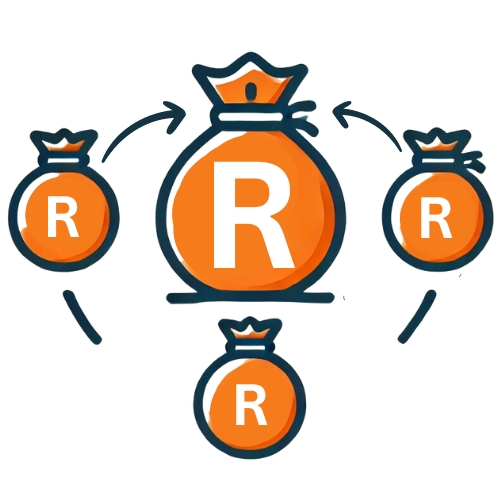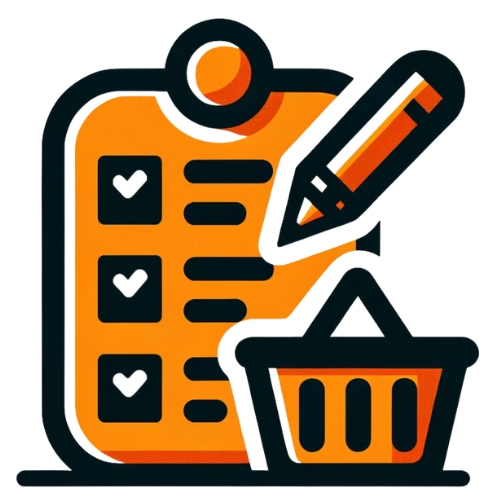
Gambling can be an exciting pastime, especially with the rise of platforms like Hollywoodbets and Betway in South Africa. However, the idea of funding this activity with a personal loan is a financial risk that could lead to long-term consequences. Personal loans are designed for necessary expenses such as medical bills, education, or home improvements, not for activities with unpredictable returns like betting. In this article, we’ll delve into why using personal loans for gambling is a bad idea, the risks involved, and better alternatives to manage your finances responsibly.
Key Takeaways
- Personal loans should only be used for essential expenses, not for gambling: Borrowing money to gamble can lead to unmanageable debt, compounded by high-interest rates and unpredictable gambling outcomes
- Gambling with borrowed money increases financial risks and potential addiction: Using loans for gambling can encourage unhealthy habits, strain relationships, and result in legal or financial consequences.
- Help is available for debt management and gambling addiction in South Africa: Resources such as financial counselling, addiction support services, and debt consolidation options can provide the guidance needed to regain control of your finances.
About Arcadia Finance
Find the perfect loan with Arcadia Finance. With zero application fees, select from 19 compliant and reputable lenders approved by South Africa’s National Credit Regulator. Trust our streamlined process to meet your financial needs with ease.
Understanding Personal Loans
A personal loan is a type of credit provided by financial institutions, such as banks or online lenders, that allows you to borrow money for a variety of purposes. Unlike home or car loans, personal loans are typically unsecured, meaning you don’t need to provide collateral like property or a vehicle to secure the loan. The amount you can borrow depends on factors such as your credit score, income, and the lender’s policies. Personal loans are versatile, but they are meant to address genuine financial needs rather than non-essential expenses.
How Personal Loans Work
When you take out a personal loan, the lender provides a lump sum of money, which you agree to repay over a set period, typically through fixed monthly instalments. The repayment term can range from a few months to several years, depending on the loan amount and the lender’s terms.
Personal loans come with interest rates that are either fixed (remain the same throughout the loan term) or variable (can change based on market conditions). Interest rates are calculated as a percentage of the loan amount and vary widely depending on your creditworthiness and the lender’s policies.
If you fail to make your repayments on time, the lender may impose penalties, such as late fees, increased interest rates, or even legal action. Missing repayments can also negatively affect your credit score, making it harder to access credit in the future. It’s crucial to understand the full cost of borrowing, including interest rates, fees, and penalties, before applying for a personal loan.
Common Reasons for Taking a Personal Loan
Personal loans are generally used for essential expenses or emergencies. Here are some common reasons South Africans take out personal loans:

Home Improvements: Personal loans can fund renovations or repairs, such as fixing a leaky roof or upgrading a kitchen, to maintain or increase the value of your home.

Medical Expenses: Unexpected medical bills can be overwhelming, and a personal loan can provide the funds needed to cover treatments, surgeries, or other healthcare costs.

Education Costs: Whether for your own studies or a child’s education, a personal loan can help pay for tuition fees, textbooks, or other educational expenses.

Debt Consolidation: Many borrowers use personal loans to combine multiple debts into one payment, often at a lower interest rate, making it easier to manage their finances.

Major Purchases: In some cases, personal loans can be used to buy essential appliances or equipment, such as a refrigerator or computer, when cash isn’t immediately available.
Personal loans serve an essential role in helping individuals manage significant expenses, but they are not intended for activities like gambling, where outcomes are highly uncertain. Misusing personal loans can lead to financial instability and long-term debt problems.

The Appeal of Gambling Platforms
Hollywoodbets and Betway
Hollywoodbets and Betway are two of the most popular online gambling platforms in South Africa, offering a wide range of betting options that cater to diverse interests. From sports betting on football, cricket, and horse racing to online casino games, these platforms attract millions of users with their user-friendly interfaces, exciting features, and promotional offers.
Hollywoodbets is well-known for its extensive sportsbook and localised options, while Betway boasts an international reputation and competitive odds. Both platforms are licensed and regulated, making them accessible and relatively safe for users within the country.
Understanding the scale of South Africa’s betting industry can put into perspective the financial risks involved. With billions of rands circulating annually, it’s easy to see how individuals might be tempted to take loans to fuel betting habits, often leading to financial strain. Learn how much South Africa’s betting industry is worth to grasp the magnitude of this rapidly growing sector.
Why Gambling Can Be Tempting
The primary appeal of gambling lies in the promise of quick financial gains. Platforms like Hollywoodbets and Betway often advertise their services with enticing promotions such as welcome bonuses, free bets, and cashback offers. For many, the idea of turning a small stake into a significant payout seems achievable, especially with the ease of online access and the variety of games available.
In addition to financial allure, the thrill of betting also plays a significant role. The excitement of predicting outcomes, coupled with the adrenaline rush when results go in your favour, can make gambling highly addictive. Many users are drawn in by the perception that they can beat the odds or gain an edge through strategic betting, even though outcomes are largely determined by chance.
The Illusion of Control
One of the biggest misconceptions about gambling is the belief that it can be a reliable way to make money. Many gamblers fall into the trap of thinking that they can control the outcomes by studying statistics, trends, or patterns, particularly in sports betting. While skill and knowledge may play a minor role in some cases, gambling always involves a significant element of chance, making consistent wins impossible.
Promotional strategies by platforms further reinforce this illusion of control. For example, frequent winners or large payouts are often highlighted, creating the impression that success is more common than it actually is. The reality is that most gamblers end up losing more money than they gain, and the odds are always in favour of the house.
This false sense of confidence can lead individuals to make poor financial decisions, such as borrowing money to gamble or increasing their stakes in an attempt to recover losses. In the end, the cycle of chasing wins often results in greater financial instability and emotional stress. Gambling should never be seen as a source of income or a solution to financial problems, as the risks far outweigh any potential rewards.
If you’re already burdened with loans, learning how to reduce the total cost of your loan can offer some relief. Strategies such as negotiating better terms and avoiding unnecessary fees can make a big difference.

Why Using a Personal Loan for Gambling Is Risky
Financial Instability
Gambling is inherently unpredictable, and relying on personal loans to fund this activity can lead to significant financial challenges. Unlike necessary expenses, gambling does not guarantee any return on investment, and losses are more common than wins. Borrowing money to gamble increases your financial burden since you still have to repay the loan, often with interest, regardless of whether you win or lose. This creates a cycle where people may take out additional loans to recover their losses, ultimately leading to unmanageable debt.
High-Interest Accumulation
Personal loans come with interest rates that can make the cost of borrowing much higher than anticipated. If you use a loan for gambling and fail to repay it on time, the interest compounds, increasing the amount owed significantly over time. Late payments can result in additional fees, further straining your finances. This scenario is especially risky when gambling losses leave you without sufficient funds to cover loan repayments, pushing you deeper into debt.
Potential for Addiction
Gambling can be addictive, and borrowing money to fund gambling activities only amplifies the problem. The availability of funds from personal loans may encourage riskier betting behaviour, as individuals feel they have more money to chase losses or increase their stakes. Over time, this can lead to compulsive gambling habits that are difficult to control. Addiction not only impacts your financial situation but can also affect your mental health, work performance, and personal relationships.
Legal and Ethical Considerations
Using a personal loan for gambling may not align with the terms set by your lender. Borrowers are often required to specify the purpose of the loan, and using it for unauthorised activities, such as gambling, could breach your loan agreement. This could result in legal consequences, including the lender demanding immediate repayment or taking action against you. Furthermore, the ethical implications of misusing borrowed funds can strain your reputation and relationships with those who depend on you financially.
Consequences of Misusing Personal Loans
- Credit Score Impact: Failing to repay a personal loan on time has a direct impact on your credit score. Lenders report missed payments to credit bureaus, which can lower your credit rating and make it harder to access loans or credit cards in the future. A low credit score can affect your ability to secure housing, vehicle financing, or even employment opportunities in some cases.
- Legal Action: Non-repayment of loans can lead to legal consequences, such as lawsuits or debt collection efforts. Lenders may take action to recover the money owed, which can result in wage garnishment or asset seizure. These measures can further destabilise your financial situation and add to the stress caused by unpaid debt.
- Personal Relationships: Financial instability often spills over into personal relationships, causing tension and conflict with family or friends. Borrowing money for gambling and failing to repay loans can strain trust and create resentment. The stress of financial difficulties may also lead to emotional distress, which can affect your ability to maintain healthy relationships.

How to Seek Help
If you find yourself struggling with financial difficulties or gambling-related problems, it’s vital to know that help is available.
Financial Counselling
Financial counselling can assist with managing debt and financial stress. Professionals can help you create a budget, assess your finances, and explore repayment options.
- National Credit Regulator (NCR): Connects you with registered debt counsellors.
- Debt Busters: Offers personalised debt management advice.
- SAHRC: Guides those facing financial discrimination.
Addiction Support
If gambling is a problem, seeking addiction support is essential. Gambling addiction is a serious issue that requires professional help.
- SARGF: Provides counselling via the NRGP helpline (0800 006 008).
- Gamblers Anonymous SA: Peer support for overcoming gambling addiction.
- Mental Health Professionals: Therapists specialising in addiction can offer tailored treatment.
Debt Management
Overwhelmed by debt? Structured solutions can help regain stability:
- Debt Consolidation: Combine debts into one loan with lower interest.
- Debt Counselling: Legal process through the NCR to restructure debts and protect assets.
- Negotiate with Creditors: Adjust terms like instalments or repayment periods.
- Voluntary Surrender of Assets: Sell non-essential assets to settle debts.
A personalised plan can make repayments manageable and improve your financial situation over time.
Implementing a debt management plan tailored to your situation can make repayments manageable and improve your financial outlook over time.
Conclusion
Using a personal loan for gambling on platforms like Hollywoodbets and Betway is a decision that carries significant financial and personal risks. Gambling is unpredictable, and funding it with borrowed money can lead to high-interest debt, strained relationships, and even legal consequences. Instead, personal loans should be reserved for genuine financial needs such as education, home improvements, or medical expenses. If gambling has become a problem, resources are available in South Africa to help with debt management and addiction support. Taking control of your finances and seeking help where needed is the best step toward a stable and secure future.
Frequently Asked Questions
Yes, it is not illegal to use a personal loan for gambling; however, many lenders discourage it as it goes against the intended purpose of the loan. Misusing the loan may also breach the terms of your agreement with the lender.
Consider using a portion of your disposable income for entertainment purposes, setting a strict budget, or exploring free or affordable recreational activities. Using savings instead of borrowing can also prevent unnecessary debt.
Reach out to a financial counsellor or a debt management service for guidance. Organisations like the National Credit Regulator (NCR) or Debt Busters in South Africa can help you create a repayment plan and negotiate with creditors.
Signs of a gambling problem include using borrowed money to gamble, feeling the need to bet larger amounts, hiding your gambling from loved ones, or gambling to recover losses. If these behaviours resonate, seeking help from addiction support services such as the South African Responsible Gambling Foundation is recommended.
Failure to repay a loan can result in penalties such as late fees, higher interest rates, legal action, and damage to your credit score. This could affect your ability to borrow in the future and may lead to long-term financial difficulties.
Fast, uncomplicated, and trustworthy loan comparisons
At Arcadia Finance, you can compare loan offers from multiple lenders with no obligation and free of charge. Get a clear overview of your options and choose the best deal for you.
Fill out our form today to easily compare interest rates from 19 banks and find the right loan for you.


